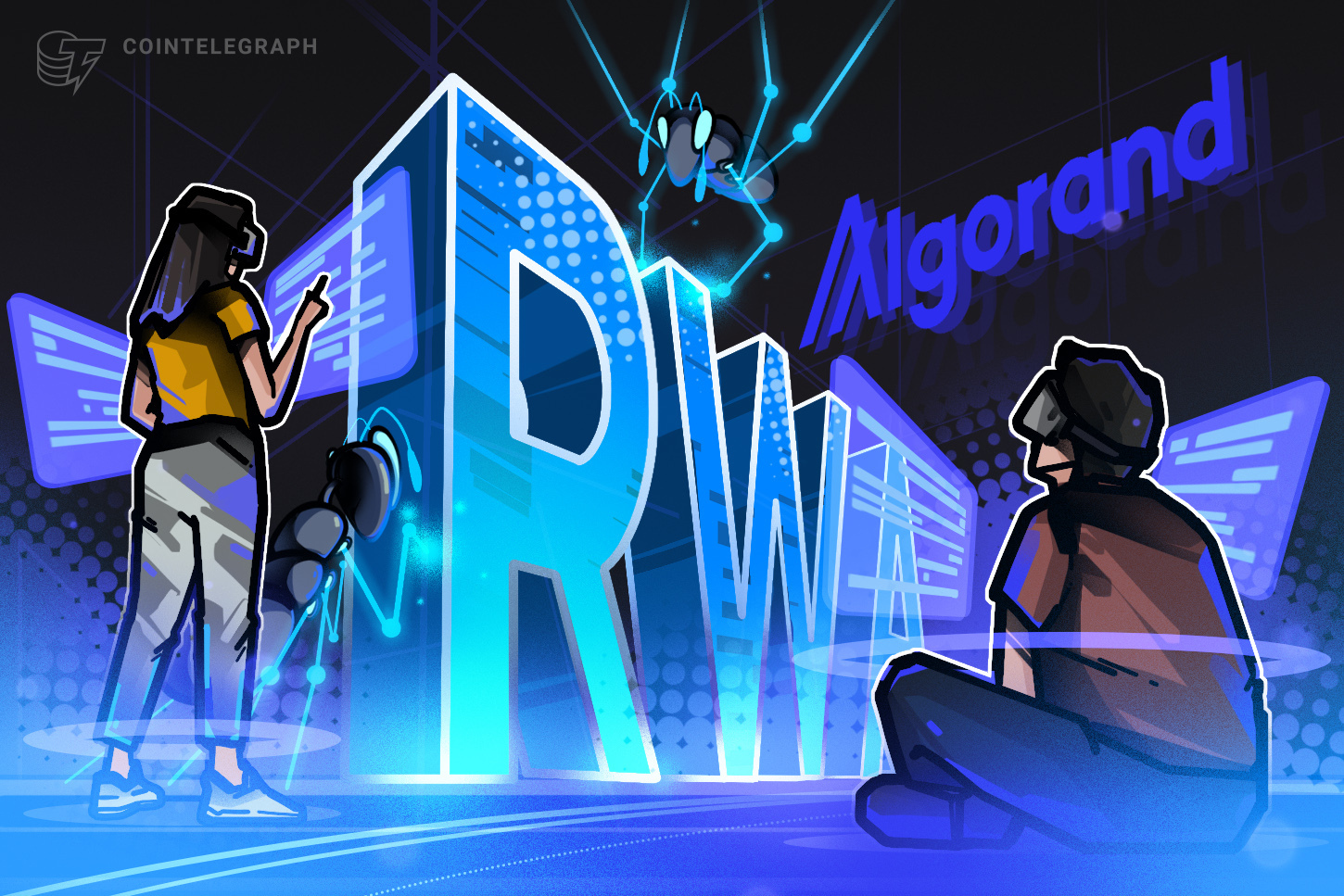Sponsored Content
Building a future for RWAs and multichain DeFi [Brought to you by @AlgoFoundation] https://t.co/9w33ygzKmt
— Cointelegraph (@Cointelegraph) July 2, 2025
Initially, we had idealistic notions about pure proof-of-stake: everyone was welcome to join in, there were no minimum requirements, no locks, and no chance of slashing. But ultimately, we ended up holding about 70% of all staked tokens. So we changed it up,“ said Vanlerberghe, the Chief Strategy & Marketing Officer at Algorand Foundation, who was a guest at the recent Cointelegraph AMA.
Previously, staking rewards were distributed through Algorand’s onchain governance system. Now, rewards are distributed in real time alongside every block produced.
Users can stake by running a node, participating in liquid staking via liquid tokens that can be used across Algorand’s DeFi protocols, or joining Reti Pools, where they contribute to a pool managed by a node runner and share in the rewards. Users can also delegate their stake to a node of their choice through Valar Staking for passive participation.
The pure proof-of-stake consensus model on which Algorand is based and which aims to bring fairness and decentralization is made possible due to advanced cryptography, particularly a verifiable random function (VRF). Each ALGO token acts as a lottery ticket, and users have a chance to be randomly selected to propose the next block at every round. This makes the consensus model secure because the selection of the block proposer happens privately on each user’s machine. So, no one knows in advance who will be chosen, and there’s no way to target or attack the block proposer.
“It makes us probably the most decentralized of all blockchains out there, apart from Ethereum,“ Vanlerberghe said.
Algorand’s integration of the Wormhole Native Token Transfers (NTT) standard, developed with Folks Finance, has made it easier to transfer tokens, especially for projects that increasingly require interoperability.
It uses a burn-and-mint model, which eliminates the risks associated with bridges. NTT also eliminates the need to lock funds in a smart contract and issue a wrapped version of a token on another chain.
“You’re actually sending your token to another chain where it’s represented natively. For example, it’s now easier for a stablecoin provider to launch a stablecoin on multiple chains, including Algorand,“ Vanlerberghe noted.
Real impact
Vanlerberghe emphasized that Algorand’s architecture stands out because it delivers instant finality. This means that once a transaction is confirmed in a block, it cannot be reversed or questioned.
With this feature, Algorand becomes a viable option for everyday payments, as demonstrated by the launch of the Pera card, a Mastercard debit card linked directly to the Algorand blockchain via the Pera wallet. Unlike other crypto cards, which rely on off-chain ledgers to simulate real-time payments, the Pera card settles transactions on-chain at the moment of purchase.
“Wherever Mastercard is accepted, your USDC on Algorand works instantly. Your balance is never locked, and you can top up or withdraw funds at any time,“ said Vanlerberghe.
He also mentioned other projects from the Algorand ecosystem, including Lofty, a real estate tokenization platform that makes property investment more accessible and liquid. “Each property is managed through a DAO, ensuring decentralized ownership and operation.
Owners also benefit from a secondary market where tokens can be traded like stocks. Because these tokens are tied into Algorand’s DeFi ecosystem, they can be used as collateral, swapped, or borrowed against, offering an entirely new level of flexibility to real estate investing,“ Vanlerberghe explained.
Algorand has also been developing a universal chess passport with World Chess. This DID stores a player’s rating, reputation, and achievements. Since online chess platforms, local clubs, and national federations operate separately, a chess passport can help tournament organizers verify identities and skill levels almost instantly.
Vanlerberghe mentioned a major beta campaign to be rolled out in September 2025 that aims to spotlight the chain’s DeFi experience. He also discussed the goals Algorand has set for itself as a mature blockchain. “Our network has been designed to operate at scale and is ready for that. The question we have is how we can create the right types of experiences to make it easy for developers, users, normies, and institutions to come on board.“
Disclaimer.This content is part of a paid partnership. The text below is a sponsored article that is not part of Cointelegraph.com editorial content. The material is written by our advertorial team and has undergone editorial review to ensure clarity and relevance, it may not reflect the views and opinions of Cointelegraph.com. Readers are encouraged to conduct their own research before taking any actions related to the company. Disclosure.


